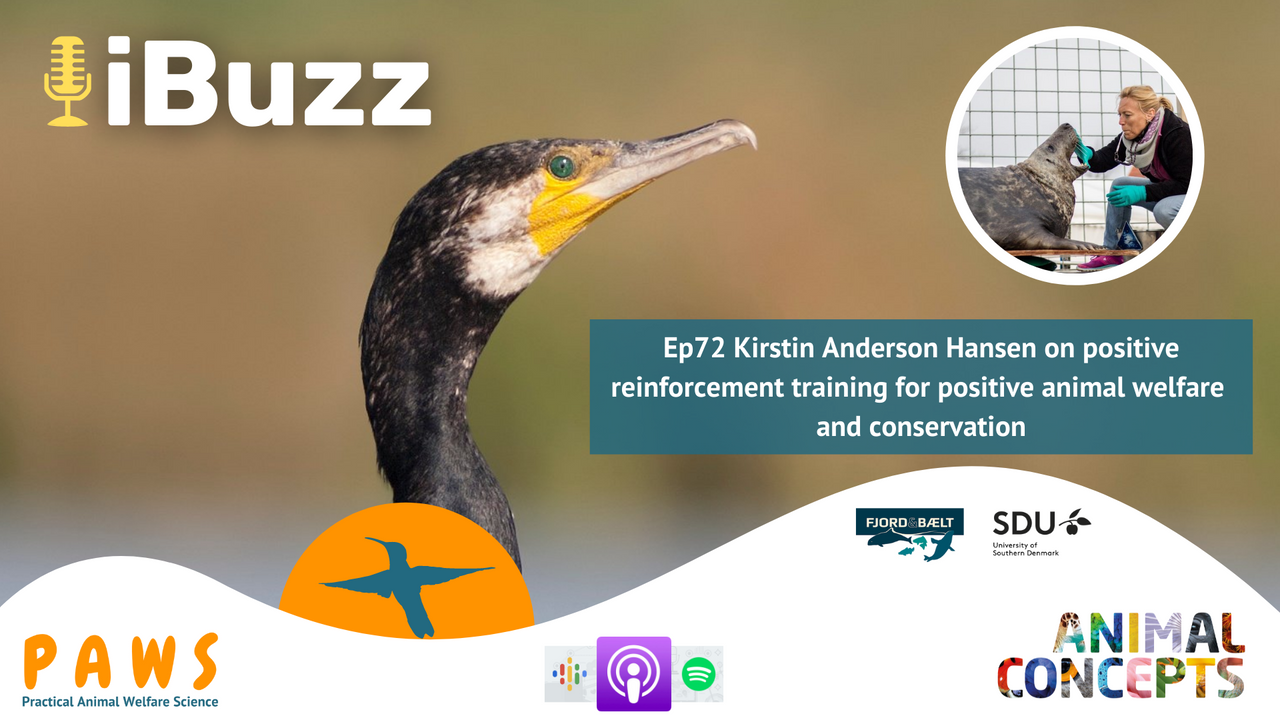Ep72 Kirstin Anderson Hansen on positive reinforcement training for positive animal welfare and conservation

Let’s welcome Dr. Kirstin Anderson Hansen for today’s podcast as she takes us on an exciting life journey through her experiences in animal training and bioacoustics of marine animals.
As a 13-year-old, Kirsten encountered her first surreal sighting of swimming killer whales whilst journeying on a bike on the San Juan islands off the coast of Washington State. This set the course as a marine biologist for this Colorado girl, starting from high school to post-doctorate.
Kirstin shares how operant conditioning for communicating with animals is all about, “Teaching animals to be comfortable in the world that they live in!” She explains that training animals in co-operating for their own wellbeing is a priority. It helps showcase the animal’s natural behaviours and individual personalities for public education, she believes.
Although her MSc was related to bioacoustics of mimicry in beluga whales, her PhD involved training a great cormorant named Loke, taking part in an underwater behavioural hearing test to prove birds could hear underwater. The highlight was that against all popular beliefs at the time, Loke was trained with only positive reinforcement to voluntarily take part in the study. Kirstin made it a fun, interesting, challenging and motivating problem-solving task for him.
Kirstin reveals more goodies about Loke and auditory brain responses of wild puffins in the form of brain waves. She stresses the importance of the collaboration between animal welfare scientists, researchers, and animal care personnel for prioritizing positive welfare of research animals.
Kirstin shares more regarding training for husbandry to reduce stress by providing the animal with choice and control to stay in, or leave the task. She expresses that positive reinforcement training of stereotypic, inactive, or subdued animals in zoos, can increase their natural behaviours, behavioural diversity, enclosure use, and social activity. The cherry on the cake, she laughs, is that the guests will stay longer this way which means more funds for zoos. She divulges how this culminated into an animal training course for DAZA, and the challenges she faced in establishing the same for EAZA later on.
The most important message that Kirstin brings is that in operant conditioning, as opposed to the common misconception, the operator is not the trainer but the animal. The animal chooses to act or not, while the trainer is responsible for the animal’s comfort, understanding, and motivation to choose to do the task or tweak the environment if it chooses not to.
To support her argument, Kirstin concludes with an eye-opening story, her experience with a grey seal she was training, that will leave you awestruck at this yet another multifaceted human-animal bond.
Listen on your favourite player or directly HERE
Learn more about the behavioural hearing test in great cormorants HERE
Learn more about auditory brain response research in wild puffins HERE
Learn more about training animals for husbandry to reduce stress HERE
Learn more about Dr. Kirstin’s work HERE
Become a member of PAWS now HERE

